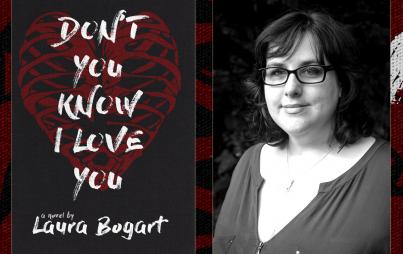
Guys in mainstream romance seem like they're always jerks. In The Spectacular Now, from earlier this year, the hero is a pitiful little commitment-phobe so afraid to declare his love that he won't even go to his girlfriend's father's funeral for fear she might think they're serious. In the mega-successful 50 Shades of Grey, Christian Grey is a stalkerish, egotistical, controlling ass. In the perennial Christmas favorite, Love Actually, we're supposed to sympathize with Mark when he stalks his best friend's new wife, because isn't that romantic? In the name of all men everywhere who have not stalked their best friend's wives, I would like to say, no, it's not romantic, and I resent the suggestion that I'm supposed to find it so.
All of which is to explain why I am such a fan of Cecilia Grant's regency romances in general, and of her new novella A Christmas Gone Perfectly Wrong in particular. Grant's heroes are not jerks. Andrew Blackshear, the hero of the novella, does not stalk Lucy Sharpe. Nor is he afraid of commitment; the plot is not about Lucy trying to get him to accept marriage while he beats his chest lamely and declares that he has to ramble, baby. The difficulty isn't that he's too much of an ass to agree to a serious relationship.
Instead, the problem is that he's too nice and proper; his commitment to British etiquette and duty almost paralyzes him. In the first scene of the novel, he is driving his carriage when he comes upon Lucy walking in the lane in a storm. Propriety demands that he should just drive on by, since it's against convention for a man to speak to a woman alone. And that's what he intends to do . . . but he finds himself drawing to a stop anyway, and then furiously berating himself. "Could one glimpse—well, one sustained and continuing view—of undressed hair really strip him so easily of all the civility and self-command that made up his better being?"
That's the conflict of the book, for Andrew; his passion keeps running up against what he sees as his "better being." Lucy—raised alone by a freethinking father—is much less hidebound, but she has a time of it getting Andrew to talk to her, then to share a carriage, and then (improbably, but entertainingly) a bed. She is aided by an escalating series of misadventures, from a coachman's sprained wrist through a broken carriage wheel, all leading to a stranded Christmas far from home, and time and space for courtship.
Since romance novels are mainly aimed at woman readers, it may seem odd to have a story where so much of the novel is built around the guy's perspective and inner life. In fact, though, it's pretty typical for romance novels to give be written equally from the man's perspective and from the woman's. Cecilia Grant told me:
"Conventional wisdom has it that women who read (M/F) romance want to identify with the heroine and fall in love with the hero. And that is one way to read romance. But I think a lot of us are drawn to romance simply because falling in love is a compelling, near-universal part of the human experience. We want to identify with, and root for, both parties in the story. And personally I find men easier to root for—as well as just plain more interesting—when they're relatable, and fallible, rather than an outrageously successful Master of the Universe or Duke of Sexytimes type.
I also just like human flaws, and the idea that flawed people deserve love and happily-ever-afters too. My heroes and heroines are variously guilty of vanity, frivolity, hypocrisy, sanctimony, unscrupulousness, and rigid rule-following. Most of them make some progress in recognizing their flaws by the end of the story, but they don't end up perfect."
Andrew is definitely an appealing character because of his flaws—as Lucy learns (or as she teaches herself) his commitment to duty and his prudishness are both endearing as well as annoying. But he's also appealing because his flaws aren't creepy; he's a prig, not an abusive thug or an infantile ass. He's imperfect, but fundamentally decent.
In fact, Andrew's flaws are tied up in the fact, and the way, that he is fundamentally decent. His excessive stiffness and concern for propriety is part of his concern for other people in general, and for Lucy in particular. He doesn't want to address her on that lane, or invite her into his carriage, because he wants to do the right thing by her. To the extent that he fears commitment, it's because he fears hurting the one he loves—his mother died in childbirth, and he fears his wife may too.
Andrew's protectiveness can be condescending and irritating. But it isn't selfish or cruel. At the end of the novel, you're not asked to pretend that love has somehow turned a jerk into a good person—a thing that love, for all its power, rarely does. Instead, you're asked to believe, as Grant says, that flawed people like Andrew, and Lucy too, are worthy of love. Which seems like a fine message for a romance—and for the Christmas season.






